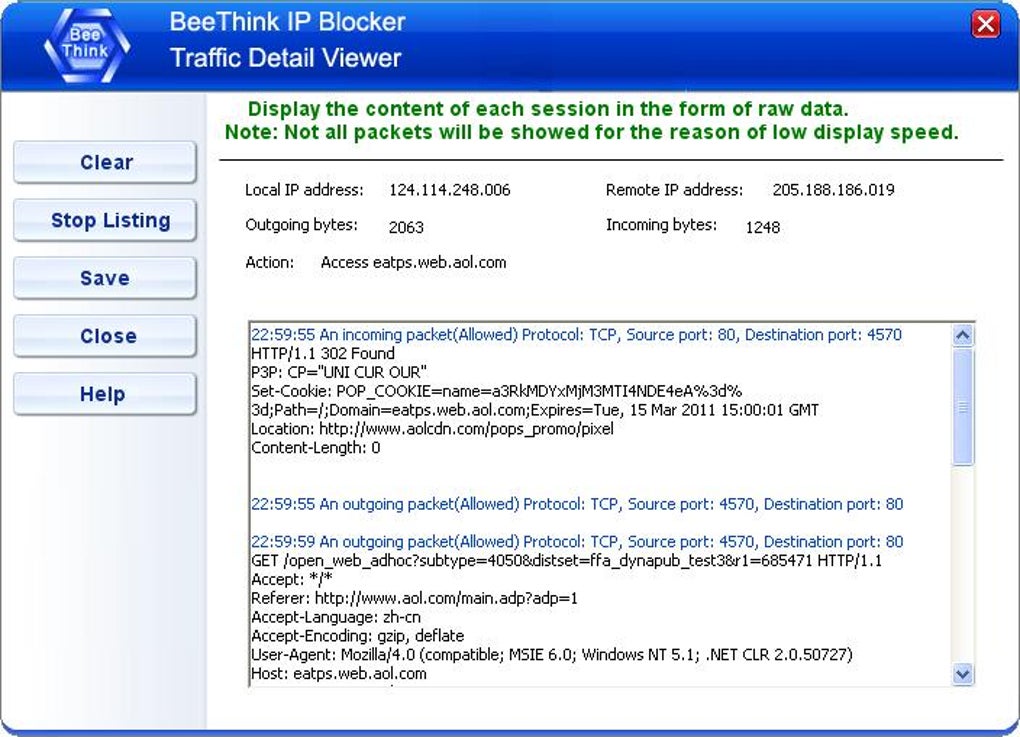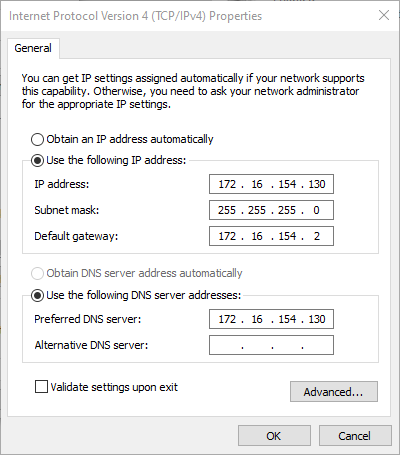
Learn how to spoof your MAC address with a MAC address hider.
Learn how to hide your MAC address (courtesy Christiaan Colen / CC BY-SA 2.0)

This is the new video that shows you how to change your IP in less than 3 minutes! Works on Ubuntu, Linux, Mac, PC, Firefox, Google Chrome, Internet Explorer. Download Hide My IP Free. Hide My IP - Windows. Award-winning privacy software for hiding your IP address. Hide My IP - Mac. Award-winning privacy software for hiding your IP address.
Why learn to hide MAC address for your computer and protect your privacy? It is interesting to note how our Personally Identifiable Information (PII) or Sensitive Personal Information (SPI) is increasingly under attack. A quick check on Wikipedia gives you a long list of over 20 different pieces of data which can be (and are) used to identify, locate, profile and target you.
Although it’s of scary, I guess we all have become used to the threat of our privacy being compromised. Long gone are the days when the only way persons were identified was by their face, fingerprints, or handwriting.
By the way, for cynics who may scoff at the need for privacy as simply an excuse to do illegal activities, they should know that there is a community of law-abiding citizens who do prefer privacy. In fact, what seems more unethical is that there is an entire industry ranging into the billions of dollars involving the sale and resale of our personal information – not to mention the wholesale spying of governments into every bit (literally) of our online data.
Our Privacy Under Increasing Attack
Our lives creep ever closer to what is depicted in futuristic dystopian movies. Check or yourself. Go to Facebook ads and check out how easily you can specifically target an audience. If this is the sort of targeting available to Joe and Jane Blo, imagine how specific the big & powerful players can target you? It’s no stretch to imagine they can target right down to the level of specific individuals.
You have probably noticed how Google can suggest a particular item for you to buy or when Facebook and LinkedIn suggest that you send a friend or connection request to a particular person. Of course, this is all just the tip of the iceberg.
As you become more informed, you will discover many more potential ways in which your privacy can be compromised or is already compromised—that is the reality. For starters, ensure that you read https://www.cogipas.com/top-10-essential-internet-privacy-tips/.
Tracking and Profiling is Getting More Sophisticated & Moving Away from IP Addresses
Most people know that the IP address of our devices can give away our location and a whole bunch of other information. That is just one important reason why we recommend using a trusted VPN service as a basic privacy measure.
- see What’s My IP Address?
However, another way in which individuals and their online activities can be identified is through the manipulation of the MAC address on their devices. The stark reality of this was highlighted by the famous whistle-blower Edward Snowden who disclosed that NSA tracks persons via their devices’ MAC addresses.
The startup company Renew tested this successfully by tracking mobile devices in and around London. This is why Apple has started introducing a system of generating random MAC addresses on their iOS devices.

What is a MAC Address?
The MAC acronym actually stands for Media Access Control. It is a unique identification code which is hard-wired or hard-coded into your computer’s and other mobile devices’ Network Interface Card (NIC) hardware. The NIC is needed by your devices when connecting to a network whether it is wired (Ethernet) or wireless (Wi-Fi). The MAC address is usually in the form of six sets of two-digit characters, separated by colons. A typical MAC address may look something like 00:0a:98:9d:65:16.
Please note that there is a different MAC address for each network interface. And so, a laptop computer that has an Ethernet port and a Wi-Fi radio will have different MAC addresses for the wired and the wireless network interfaces.
MAC addresses are 48 bits in length and the first 24 bits contain a unique set of characters known as the Organizationally Unique Identifier (OUI) or vendor ID. This identifier or ID uniquely identifies the manufacturer of the networking hardware. The following are the OUI for some manufacturers:
Belkin: 00-30-BD
Cisco: 00-40-96
Dell: 00-14-22
Nortel: 00-04-DC
Some manufacturers of larger networking hardware may use more than one set of Organizationally Unique Identifiers (OUI).
With your MAC address, you become identifiable on a network. As a matter-of-fact, there are some schools and companies which require that persons accessing their wifi provide their MAC address. With that information (and, may I say, under normal conditions), network administrators can use MAC filtering and prevent unauthorised entry to their network even if the unwanted device was issued a different IP address by DHCP.
Network administrators also use MAC addresses for diagnosing network issues since they don’t change (under normal circumstances) in comparison to dynamic IP addresses which may change.
Can I Block my MAC address?
Well, the answer to this question may have a YES-NO kind of answer. As for the NO-part of the answer, every device on a network has to present a MAC address and so access to a MAC address cannot be blocked. The situation can be compared to the postal system. For persons to get their mail, they need to use an address. Without an address, the postman will not know where to leave a package. In a similar way, devices on a network have to present a MAC address so that their data packets can be routed to them. However, that MAC address need not be the original hard-coded MAC address that the device was manufactured with. And so, in this context, YES we can hide (or if you prefer block) our original MAC address by using another MAC address. This pseudo-MAC address may be a random one that is changed by the user or generated by computer software or it could be one that is spoofed from another device which has access to the network. In this way, a computer system may be manipulated so that the MAC address reported by the operating system does not match the permanent physical MAC address. This is beneficial for addressing privacy concerns when doing things like using a Wi-Fi hotspot.
IMPORTANT: This method of switching the MAC address is not permanent. The computer will restore the permanent physical MAC address after it is rebooted.
NOTE: Apart from the MAC address on your computer’s network adapters, there is also a MAC address for your router. Therefore, if you are operating your own home network, you may have to change your router’s MAC address as well as your computer’s MAC address. You will be able to change the MAC address on your router using your router’s web interface.
Software which can spoof your MAC Address
The following is a list of software tools which may be used to change your computer’s MAC address. The list includes tools for both Windows and Mac systems.

- Technitium MAC Address Changer https://technitium.com/tmac/
- NoVirusThanks MAC Address Changer http://www.novirusthanks.org/products/mac-address-changer/
- SMAC MAC Address Changer http://www.klcconsulting.net/smac/#Download
- Change MAC Address http://lizardsystems.com/change-mac-address/
- MacAppStuff Spoof MAC for Mac http://download.cnet.com/MacAppStuff-Spoof-MAC/3000-2144_4-75289372.html
- ChangeMAC for Mac http://download.cnet.com/ChangeMAC/3000-18508_4-169342.html
- MAC Change http://download.cnet.com/MAC-Change/3000-2085_4-10343579.html
Spoofing your MAC Address in Windows
Although there is software designed specifically to spoof MAC addresses, spoofing is possible without the use of additional software. It can be done safely within the Windows operating system — and it is legal too. The following sets out how you may spoof your MAC address within Windows — of course, you do so at your own risk.
STEP 1: Locate the Device Manager
For Windows 8.1 and higher, you may press Windows Key + X before clicking Device Manager.
For Windows 7, you may type “Device Manager” in the Search box which comes up when you press the Windows key. Click Device Manager or press enter to open the console.
STEP 2: Identify the network interface that you wish to modify or spoof.
Identify “Network Adapters” from the list of devices. Double-click it to reveal all available network interfaces. Right-click the one you wish to modify and then click Properties.
STEP 3: Change the MAC address
Open the Properties window, click the Advanced tab and then select Network Address from the options listed. If you don’t see this option then your network driver doesn’t have this feature.
Switch the option from “Not Present” to “Value”. You may see “0000000000” in the Value box. Remove this entry and then insert your new MAC address without any additional spaces or characters. Press OK.
Spoofing your MAC Address on Apple’s Mac OS X
Although the Mac OS X allows you to see the MAC address for each network interface via its System Preferences, it does not allow users to change it from that point. However, users may change it by using a single command.
Press Command + Space, type “Terminal”, and press the Enter key to open a Terminal window. You will need to run the command below. Remember to replace en0 with the correct network interface name and replace xx:xx:xx:xx:xx:xx with your desired MAC address.
sudo ifconfig en0 xx:xx:xx:xx:xx:xx
Ip Blocker Freeware
Generally speaking, the network interface will be en0 or en1 based on whether you are modifying the Wi-Fi or Ethernet interface. If unsure of the network interface name, run the ifconfig command to view all interfaces.
Ip Address Blocker Free Mac Operating System
REMEMBER: This method of switching the MAC address is not permanent. The computer will restore the permanent physical MAC address after it is rebooted.